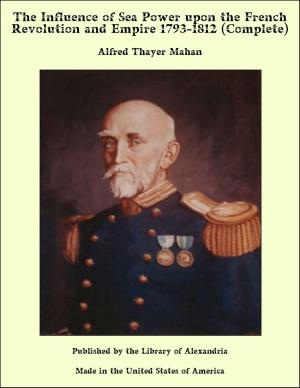The Laird's Luck and Other Fireside Tales
Nonfiction, Religion & Spirituality, New Age, History, Fiction & Literature| Author: | Sir Arthur Thomas Quiller-Couch | ISBN: | 9781465594075 |
| Publisher: | Library of Alexandria | Publication: | March 8, 2015 |
| Imprint: | Language: | English |
| Author: | Sir Arthur Thomas Quiller-Couch |
| ISBN: | 9781465594075 |
| Publisher: | Library of Alexandria |
| Publication: | March 8, 2015 |
| Imprint: | |
| Language: | English |
I had the honour of commanding my Regiment, the Moray Highlanders, on the 16th of June, 1815, when the late Ensign David Marie Joseph Mackenzie met his end in the bloody struggle of Quatre Bras (his first engagement). He fell beside the colours, and I gladly bear witness that he had not only borne himself with extreme gallantry, but maintained, under circumstances of severest trial, a coolness which might well have rewarded me for my help in procuring the lad's commission. And yet at the moment I could scarcely regret his death, for he went into action under a suspicion so dishonouring that, had it been proved, no amount of gallantry could have restored him to the respect of his fellows. So at least I believed, with three of his brother officers who shared the secret. These were Major William Ross (my half-brother), Captain Malcolm Murray, and Mr. Ronald Braintree Urquhart, then our senior ensign. Of these, Mr. Urquhart fell two days later, at Waterloo, while steadying his men to face that heroic shock in which Pack's skeleton regiments were enveloped yet not overwhelmed by four brigades of the French infantry. From the others I received at the time a promise that the accusation against young Mackenzie should be wiped off the slate by his death, and the affair kept secret between us. Since then, however, there has come to me an explanation which—though hard indeed to credit—may, if true, exculpate the lad. I laid it before the others, and they agreed that if, in spite of precautions, the affair should ever come to light, the explanation ought also in justice to be forthcoming; and hence I am writing this memorandum. It was in the late September of 1814 that I first made acquaintance with David Mackenzie. A wound received in the battle of Salamanca—a shattered ankle—had sent me home invalided, and on my partial recovery I was appointed to command the 2nd Battalion of my Regiment, then being formed at Inverness. To this duty I was equal; but my ankle still gave trouble (the splinters from time to time working through the flesh), and in the late summer of 1814 I obtained leave of absence with my step-brother, and spent some pleasant weeks in cruising and fishing about the Moray Firth. Finding that my leg bettered by this idleness, we hired a smaller boat and embarked on a longer excursion, which took us almost to the south-west end of Loch Ness.
I had the honour of commanding my Regiment, the Moray Highlanders, on the 16th of June, 1815, when the late Ensign David Marie Joseph Mackenzie met his end in the bloody struggle of Quatre Bras (his first engagement). He fell beside the colours, and I gladly bear witness that he had not only borne himself with extreme gallantry, but maintained, under circumstances of severest trial, a coolness which might well have rewarded me for my help in procuring the lad's commission. And yet at the moment I could scarcely regret his death, for he went into action under a suspicion so dishonouring that, had it been proved, no amount of gallantry could have restored him to the respect of his fellows. So at least I believed, with three of his brother officers who shared the secret. These were Major William Ross (my half-brother), Captain Malcolm Murray, and Mr. Ronald Braintree Urquhart, then our senior ensign. Of these, Mr. Urquhart fell two days later, at Waterloo, while steadying his men to face that heroic shock in which Pack's skeleton regiments were enveloped yet not overwhelmed by four brigades of the French infantry. From the others I received at the time a promise that the accusation against young Mackenzie should be wiped off the slate by his death, and the affair kept secret between us. Since then, however, there has come to me an explanation which—though hard indeed to credit—may, if true, exculpate the lad. I laid it before the others, and they agreed that if, in spite of precautions, the affair should ever come to light, the explanation ought also in justice to be forthcoming; and hence I am writing this memorandum. It was in the late September of 1814 that I first made acquaintance with David Mackenzie. A wound received in the battle of Salamanca—a shattered ankle—had sent me home invalided, and on my partial recovery I was appointed to command the 2nd Battalion of my Regiment, then being formed at Inverness. To this duty I was equal; but my ankle still gave trouble (the splinters from time to time working through the flesh), and in the late summer of 1814 I obtained leave of absence with my step-brother, and spent some pleasant weeks in cruising and fishing about the Moray Firth. Finding that my leg bettered by this idleness, we hired a smaller boat and embarked on a longer excursion, which took us almost to the south-west end of Loch Ness.















